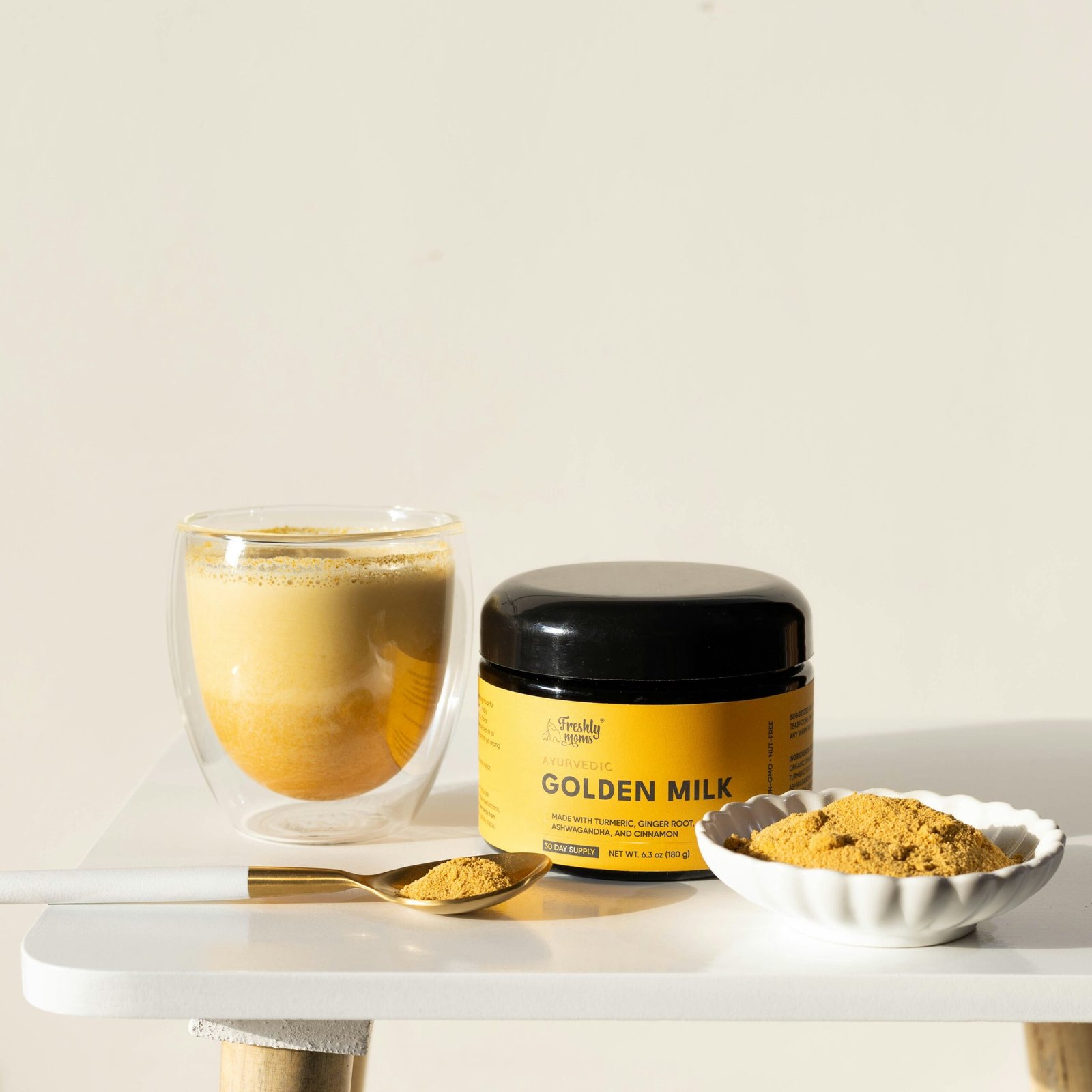
Top Anti-Inflammatory Foods for Every Season
When it comes to combating inflammation, incorporating a variety of anti-inflammatory foods into our diet is essential. These foods not only provide essential nutrients but also contain powerful compounds that can help reduce inflammation in the body. The best part is that these foods are available in every season, allowing us to enjoy their benefits year-round.
1. Spring: As the weather gets warmer, our bodies naturally crave lighter, refreshing foods. In spring, we can turn to vibrant greens like spinach, kale, and Swiss chard. These leafy greens are rich in antioxidants, vitamins, and minerals that help fight inflammation. Additionally, spring is the season for berries, such as strawberries and blueberries, which are packed with antioxidants and phytochemicals that have anti-inflammatory properties.
2. Summer: The summer season brings an abundance of colorful fruits and vegetables that are not only delicious but also highly beneficial for reducing inflammation. Tomatoes, for example, are rich in lycopene, a powerful antioxidant known for its anti-inflammatory effects. Other summer favorites like watermelon, cucumbers, and bell peppers are also great choices as they are hydrating and contain anti-inflammatory compounds.
3. Fall: As the leaves change color, we can turn to autumnal produce to support our anti-inflammatory diet. Squash varieties like butternut squash and pumpkin are excellent sources of beta-carotene and vitamin C, both of which have anti-inflammatory properties. Additionally, fall is the season for cruciferous vegetables like broccoli and cauliflower, which are packed with antioxidants and fiber that help combat inflammation.
4. Winter: In the colder months, it’s important to focus on warming foods that nourish our bodies and reduce inflammation. Citrus fruits like oranges and grapefruits are abundant during winter and are rich in vitamin C, a potent antioxidant that helps fight inflammation. Root vegetables like sweet potatoes and carrots are also great choices as they are packed with vitamins, minerals, and fiber that support a healthy immune system and reduce inflammation.
5. Year-round staples: While each season offers its own unique array of anti-inflammatory foods, there are certain staples that we can enjoy all year long. Fatty fish like salmon, mackerel, and sardines are rich in omega-3 fatty acids, which have been shown to have powerful anti-inflammatory effects. Nuts and seeds, such as almonds, walnuts, and flaxseeds, are also excellent sources of omega-3s and other anti-inflammatory compounds.
In conclusion, incorporating a variety of anti-inflammatory foods into our diet is crucial for promoting overall well-being and reducing the risk of chronic inflammation. By embracing the seasonal bounty of fruits, vegetables, and other nutrient-rich foods, we can nourish our bodies and support a healthy immune system year-round. So, whether it’s spring, summer, fall, or winter, there are plenty of delicious and nutritious options to help us combat inflammation and live a vibrant, healthy life.
4. Fatty Fish
Another excellent food to include in your spring diet to combat inflammation is fatty fish. Fish like salmon, mackerel, and sardines are rich in omega-3 fatty acids, which have been proven to have anti-inflammatory effects. These healthy fats not only help reduce inflammation but also promote heart health and improve brain function.
5. Garlic
Garlic is not only a flavorful addition to your meals but also a powerful anti-inflammatory food. It contains a compound called allicin, which has been shown to reduce inflammation and oxidative stress in the body. Including garlic in your spring dishes can not only enhance the taste but also provide numerous health benefits.
6. Nuts and Seeds
Nuts and seeds are not only delicious but also packed with nutrients that fight inflammation. Almonds, walnuts, flaxseeds, and chia seeds are all excellent choices to include in your spring diet. These nuts and seeds are rich in healthy fats, fiber, and antioxidants, which help reduce inflammation and promote overall well-being.
7. Green Tea
Swap your regular cup of coffee for a refreshing cup of green tea this spring. Green tea is rich in antioxidants called catechins, which have powerful anti-inflammatory effects. Studies have shown that regularly consuming green tea can help reduce inflammation and lower the risk of chronic diseases like heart disease and cancer.
8. Dark Chocolate
Indulging in a small piece of dark chocolate can actually be beneficial for reducing inflammation. Dark chocolate contains flavonoids, which are antioxidants that have anti-inflammatory properties. However, it’s important to choose dark chocolate with a high cocoa content (70% or higher) to reap the maximum benefits.
By incorporating these anti-inflammatory foods into your spring diet, you can not only enjoy delicious meals but also support your overall health and well-being. Remember to always choose fresh, seasonal ingredients and listen to your body’s needs when it comes to nourishing yourself.
4. Blueberries
Another delicious and healthy summer fruit is blueberries. These small berries are packed with antioxidants called anthocyanins, which have been shown to have anti-inflammatory effects. Enjoy them as a snack, add them to your morning smoothie, or sprinkle them on top of yogurt for a nutritious and inflammation-fighting treat.
5. Leafy Greens
Summer is the perfect time to load up on leafy greens like spinach, kale, and Swiss chard. These greens are not only low in calories but also high in vitamins, minerals, and antioxidants. They are particularly rich in vitamin K, which has been shown to have anti-inflammatory effects. Incorporate them into your salads, stir-fries, or smoothies for a healthy dose of inflammation-fighting goodness.
6. Grilled Fish
When it comes to summer grilling, opt for fish instead of red meat. Fatty fish like salmon, mackerel, and sardines are rich in omega-3 fatty acids, which have been shown to reduce inflammation in the body. Grilling fish not only adds a delicious smoky flavor but also helps to retain its nutritional value. Serve it with a side of grilled vegetables for a complete and anti-inflammatory meal.
7. Turmeric
Turmeric is a spice that has been used for centuries in traditional medicine for its anti-inflammatory properties. It contains a compound called curcumin, which has been shown to reduce inflammation in the body. Incorporate turmeric into your summer recipes by adding it to marinades, dressings, or smoothies. You can also enjoy it in the form of golden milk or turmeric tea for an extra dose of anti-inflammatory goodness.
8. Green Tea
Stay cool and hydrated this summer with a refreshing cup of green tea. Green tea is rich in antioxidants called catechins, which have been shown to have anti-inflammatory effects. It also contains a compound called EGCG, which has been studied for its potential to reduce inflammation in the body. Enjoy it hot or iced, and add a squeeze of lemon for an extra burst of flavor and vitamin C.
By incorporating these anti-inflammatory foods into your summer diet, you can not only enjoy delicious meals but also support your overall health and well-being. Whether it’s a juicy tomato salad, a refreshing watermelon snack, or a grilled fish dinner, these foods will not only satisfy your taste buds but also help to reduce inflammation in your body. So, make the most of the summer season by indulging in these nutritious and inflammation-fighting foods.
4. Turmeric
Another spice that packs a powerful anti-inflammatory punch is turmeric. This vibrant yellow spice contains a compound called curcumin, which has been extensively studied for its anti-inflammatory properties. Curcumin has been shown to inhibit the production of inflammatory molecules in the body, making it a valuable addition to your fall pantry. Use turmeric in curries, roasted vegetables, or even golden milk for a delicious and healthy way to reduce inflammation.
5. Brussels Sprouts
Brussels sprouts are a cruciferous vegetable that is not only packed with nutrients but also boasts anti-inflammatory benefits. They are rich in antioxidants, including vitamin C and vitamin K, which help combat inflammation in the body. Roast or sauté Brussels sprouts with a drizzle of olive oil and a sprinkle of sea salt for a tasty and nutritious side dish.
6. Walnuts
Not only are walnuts a great source of healthy fats, but they also contain powerful anti-inflammatory compounds. They are rich in omega-3 fatty acids, which have been shown to reduce inflammation and promote heart health. Snack on a handful of walnuts or sprinkle them on top of salads and oatmeal to reap their anti-inflammatory benefits.
7. Cinnamon
Cinnamon is a warm and comforting spice that is perfect for fall. It not only adds a delicious flavor to your dishes but also provides anti-inflammatory properties. Cinnamon contains compounds that help regulate inflammation in the body, making it a valuable addition to your fall recipes. Sprinkle cinnamon on top of oatmeal, add it to baked goods, or stir it into your morning coffee for a tasty and anti-inflammatory boost.
8. Sweet Potatoes
Sweet potatoes are a nutritious and delicious fall staple that also offers anti-inflammatory benefits. They are rich in antioxidants, including beta-carotene and vitamin C, which help reduce inflammation in the body. Roast them, mash them, or use them in soups and stews for a healthy and comforting addition to your fall meals.
Incorporating these anti-inflammatory foods into your fall diet can help support your overall health and well-being. Whether you’re enjoying a warm bowl of pumpkin soup or savoring a slice of apple pie, these ingredients will not only satisfy your taste buds but also provide a natural way to reduce inflammation in your body. So embrace the flavors of fall and nourish your body with these anti-inflammatory powerhouses.
4. Ginger
Ginger is another powerful anti-inflammatory ingredient that can be incorporated into your winter meals. It contains gingerol, a compound with potent anti-inflammatory and antioxidant properties. You can add freshly grated ginger to stir-fries, soups, or even steep it in hot water to make a soothing ginger tea.
5. Turmeric
Turmeric is a vibrant yellow spice that has been used for centuries in traditional medicine for its anti-inflammatory properties. It contains curcumin, a compound that has been shown to reduce inflammation in the body. You can add turmeric to curries, roasted vegetables, or even make a golden milk latte by combining it with warm milk and honey.
6. Dark Leafy Greens
Dark leafy greens like kale, spinach, and Swiss chard are not only packed with essential nutrients but also have anti-inflammatory properties. They are rich in vitamins, minerals, and antioxidants that can help reduce inflammation in the body. Incorporate these greens into your winter salads, soups, or sauté them as a side dish.
7. Fatty Fish
Fatty fish like salmon, mackerel, and sardines are excellent sources of omega-3 fatty acids, which have been shown to have anti-inflammatory effects. These healthy fats can help reduce inflammation and promote heart health. Include fatty fish in your winter meal plan by grilling, baking, or pan-searing them.
8. Green Tea
Green tea is not only a warm and comforting beverage during the winter months but also has powerful anti-inflammatory properties. It contains catechins, a type of antioxidant that can help reduce inflammation in the body. Enjoy a cup of green tea in the morning or throughout the day to reap its anti-inflammatory benefits.
9. Whole Grains
Whole grains like quinoa, brown rice, and oats are rich in fiber and other nutrients that can help reduce inflammation. They have a lower glycemic index compared to refined grains, which means they release sugar into the bloodstream more slowly, preventing spikes in blood sugar levels that can lead to inflammation. Incorporate whole grains into your winter meals by swapping out refined grains in recipes or enjoying them as a side dish.
10. Dark Chocolate
Yes, you read that right – dark chocolate can be a part of an anti-inflammatory winter diet. Dark chocolate contains flavonoids, which are antioxidants that have been shown to have anti-inflammatory effects. Look for dark chocolate with a high cocoa content (70% or higher) and enjoy it in moderation as a treat during the winter months.


